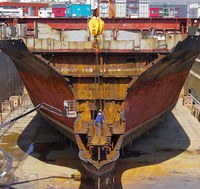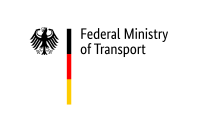Hongkong Convention in force
 In international maritime shipping, the topic of ship recycling has so far not been a glorious one: Even up until this year, about 90 percent of the global decommissioned ocean-going ships were broken up in south Asia, most of the time on unsecured beaches and under questionable conditions.
In international maritime shipping, the topic of ship recycling has so far not been a glorious one: Even up until this year, about 90 percent of the global decommissioned ocean-going ships were broken up in south Asia, most of the time on unsecured beaches and under questionable conditions.
In Europe, the EU Ship Recycling Regulation has been in force since 2019 – and it remains the applicable instrument: Ships flying a flag of an EU member state may only be dismantled under strict conditions. This includes an Inventory of hazardous materials and commissioning listed recycling facilities only. So far, the European Commission has recognized over 40 recycling facilities where ships registered in the EU may be dismantled – among which are eight shipyards in Turkey and one in the USA.
Regrettably, so far, ships flying a flag of an EU member state make up only a small part of the globally recycled tonnage. And in the past, even of these ships not everyone was dismantled in an EU-certified recycling facility: While it was not prohibited, some decrepit ships changed to a non-EU flag at the end of their lifetime. This wa,y requirements could be avoided and costs saved.
This option no longer exists. Globally, environmental and safety requirements are a lot more stringent now that the Hongkong Convention is in force. Certified recycling facilities, environmentally sound processes, strict audits, detailed obligations of compliance and documentation as well as a well-trained and protected workforce are now mandatory all over the world. As a result, costs are rising significantly even in countries where ship breaking was previously low-priced.
This way, the Hongkong Convention equalizes previous competitive disadvantages – both European recycling facilities and shipping companies that value socially and environmentally sustainable ship recycling benefit from this. One of these shipping companies is Hapaq Lloyd: It regularly changes ships to the German Flag at the end of their lifecycle in order for the ships to be dismantled and utilized to the highest sustainability standards. Why Hapaq Lloyd goes that extra mile and which individual steps are part of their ship recycling process is explained in the company's magazine "Logbook". Read about how the Germany Flag supports other shipping companies on their way to more environmental and climate protection in our magazine "Ausguck".
More on "Ship Recycling".

